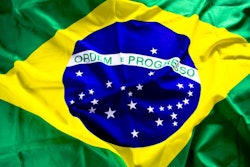
At a recent regional United Egg Producers (UEP) briefing in Des Moines, Iowa, U.S. egg farmers discussed the current challenges being faced by the egg industry in the Netherlands related to the use of the pesticide Fipronil. While the pesticide is not used on commercial U.S. egg farms, egg farmers are concerned about smaller egg farms using the pesticide without knowing its consequences.
Fipronil is easy for producers to get as it can be bought over the counter at most farm stores. However, it is not approved for use around food-producing animals.
Oscar Garrison, vice president of food safety affairs for the UEP, raised an interesting point to attendees. Fipronil can be found in various brands of flea and tick medications as the No. 1 ingredient. If one were to consider how long those medications are effective, it becomes more interesting to think about what it may do to a chicken or how long the pesticide residue could be around, Garrison explained.
Those medications do not generally instruct customers to use protective gloves to apply the medication. However, Fipronil is said to be a hazard to humans if consumed, hence the recent fear induced by the Netherlands’ scandal.
The U.S. allows up to six times the amount of Fipronil residue as the EU does in inspections, making it more of a concern if consumed within the United States. Garrison added that the pesticide residue program allows specific residues on certain products, while not allowing it on other products. This is done to keep from one type of residue building up enough to affect the human system after consuming that product multiple times.
Dutch authorities halted production at about 200 farms as traces of the pesticide were found. Two people have been arrested in connection with the egg scandal. Garrison said the two facing criminal charges were presenting the product as a disinfectant rather than a pesticide. UEP leaders had initial contact with those involved in the Netherlands to better understand the situation. Once it became a criminal investigation, the initial contact(s) made in the Netherlands largely have ceased.
Chad Gregory, UEP president and CEO, added that as the number of cage-free operations, including backyard farmers, in the U.S. continues to increase, this potential situation becomes a bigger hazard as producers may try to treat the mites that may occur with such housing options on their own.
South Korea’s Ministry of Food and Drug Safety (MFDS) did test shipments of U.S. eggs for Fipronil. The export of U.S. eggs into Korea has reopened, Garrison said.
Gregory expects the situation to be addressed at an upcoming national egg producer meeting by an official from the region associated with the current Netherlands scandal.
Scandal repercussions in other nations
The repercussions of the latest scandal are being felt worldwide, as Dutch eggs are frequently exported to not only European countries but also other nations as well.
SBS reported that contaminated eggs did reach Hong Kong, leading the authorities there to carry out additional checks on eggs from Europe and the U.S. In Germany, Aldi immediately pulled all eggs from its supermarket shelves, citing fears of Fipronil contamination.
Even in countries that are close to self-sufficiency, shell eggs have been affected indirectly by the scandal. In the U.K., the Food Standards Agency (FSA) estimates that 700,000 Dutch eggs have been imported, mainly as egg products.

















